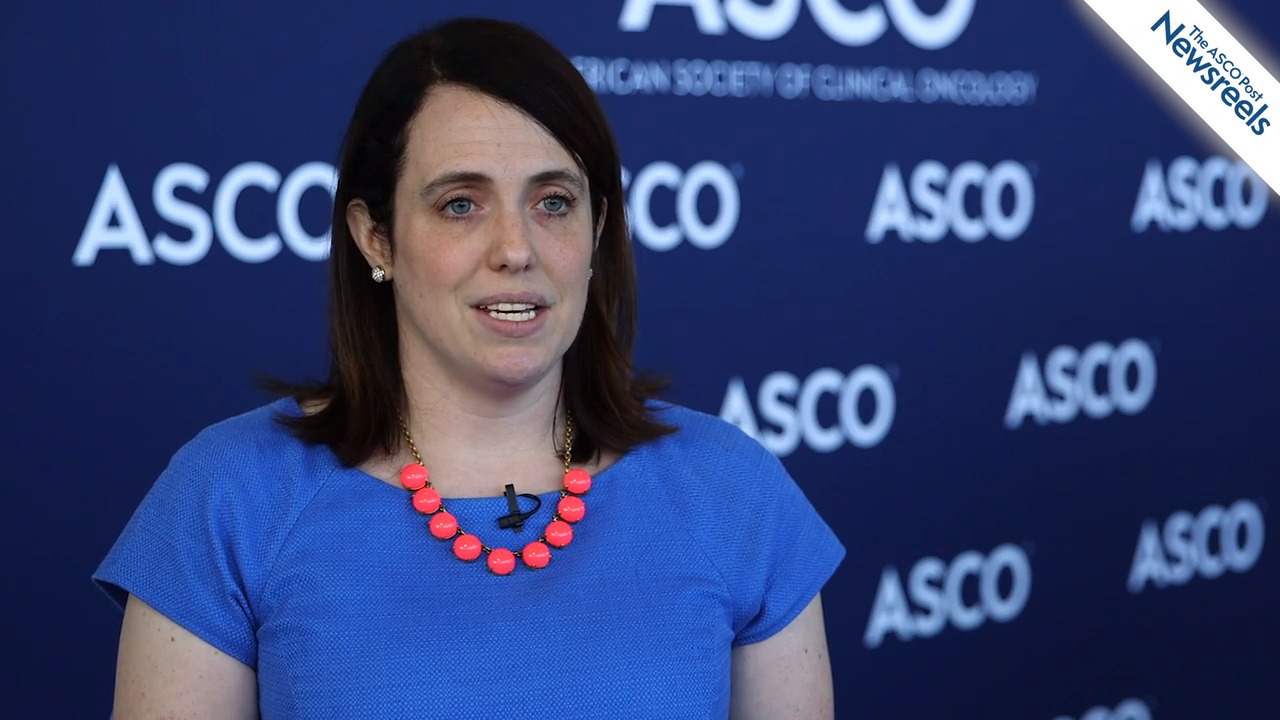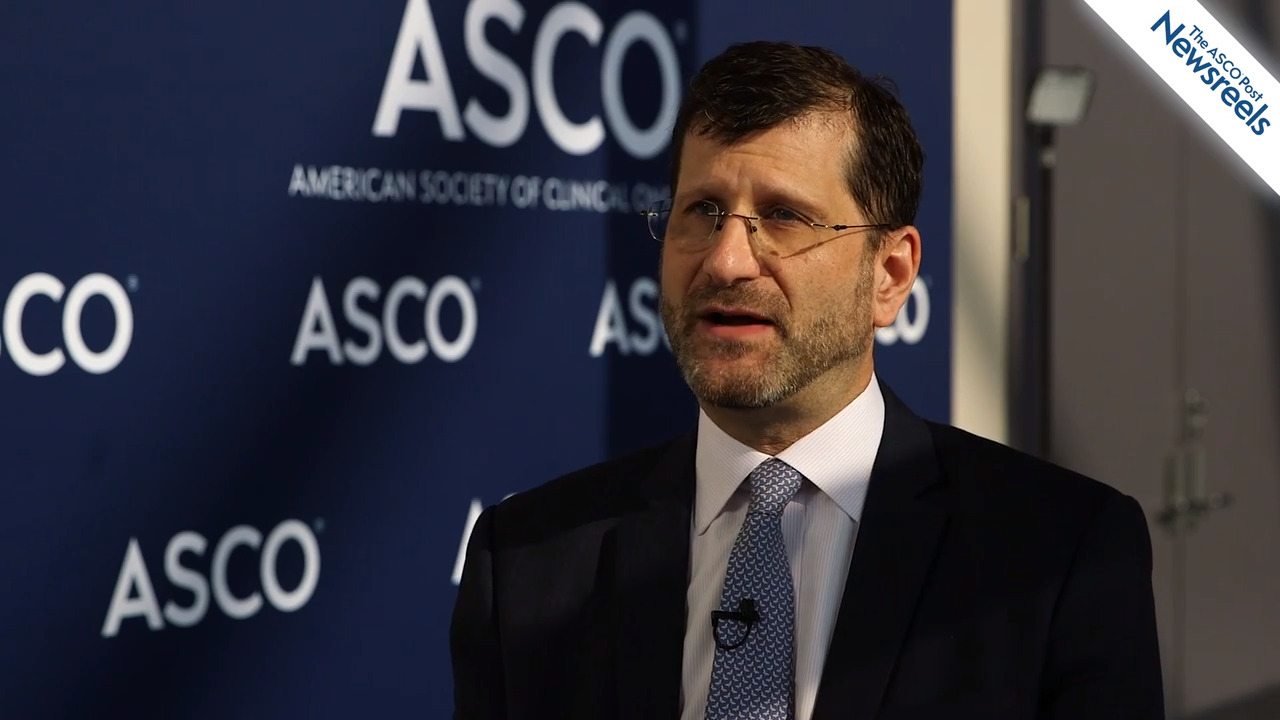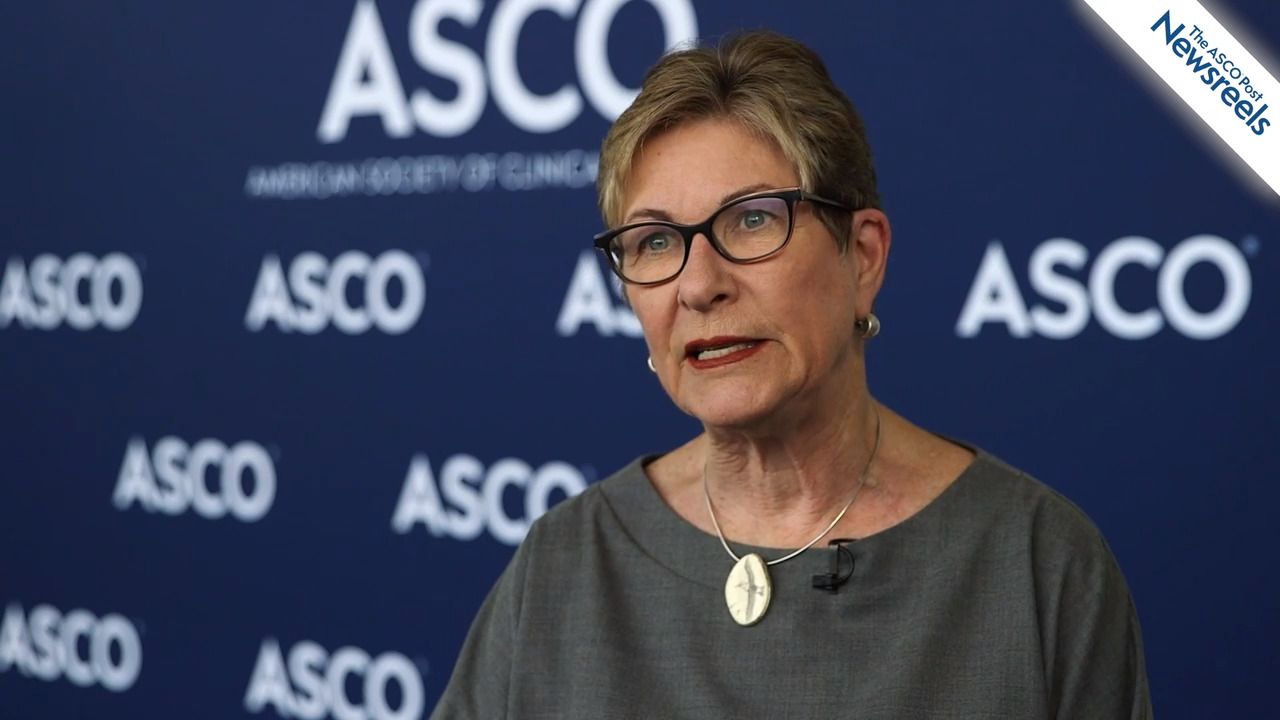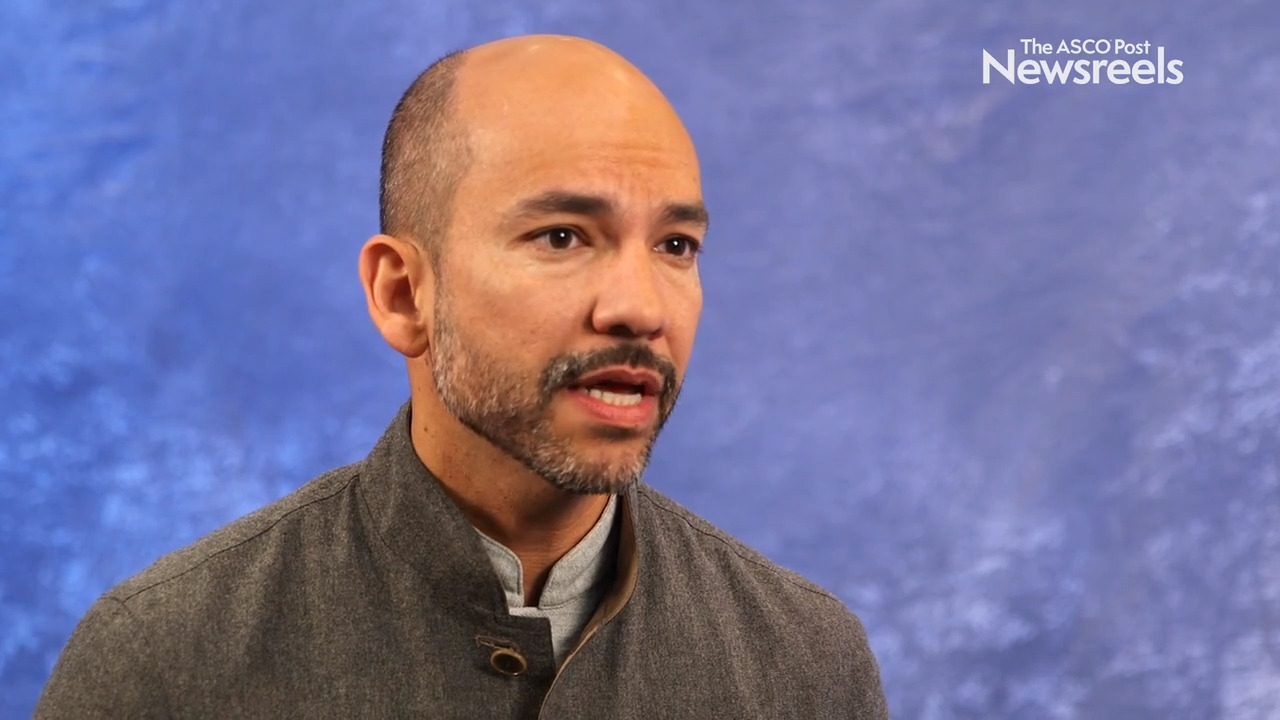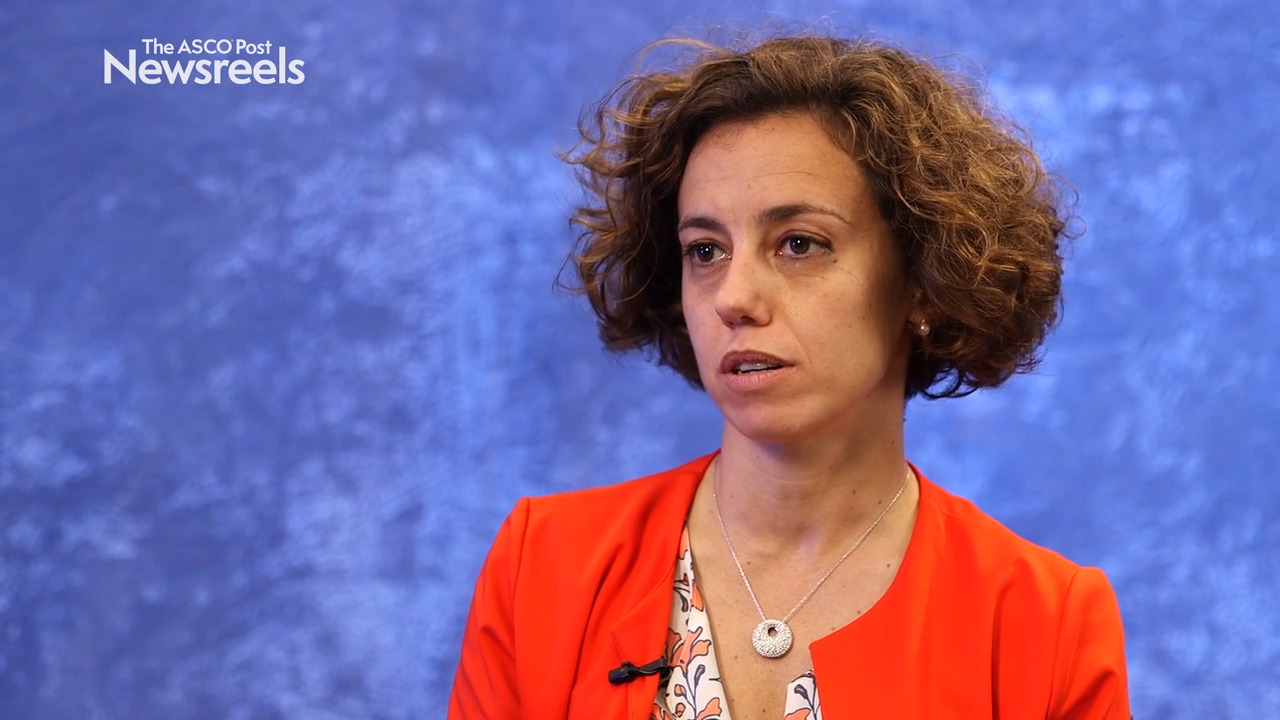Kim N. Chi, MD, on Metastatic Castration-Sensitive Prostate Cancer: First Results From the TITAN Trial
2019 ASCO Annual Meeting
Kim N. Chi, MD, of BC Cancer, discusses the first phase III findings from the TITAN study of apalutamide vs placebo in patients with metastatic castration-sensitive prostate cancer receiving androgen-deprivation therapy (Abstract 5006).
Kerry A. Rogers, MD, of The Ohio State University, discusses a 3-year follow-up of phase Ib safety and efficacy findings with the selective BTK inhibitor acalabrutinib and the anti-CD20 monoclonal antibody obinutuzumab in patients with CLL (Abstract 7500).
Michael J. Morris, MD, of Memorial Sloan Kettering Cancer Center, discusses the phase III findings from the Alliance A031201 trial, which showed that adding abiraterone acetate to enzalutamide did not improve survival in men with metastatic castration-resistant prostate cancer (Abstract 5008).
Margaret A. Tempero, MD, discusses phase III results from the multicenter APACT trial, which showed that adjuvant nab-paclitaxel plus gemcitabine may be an option for patients who are ineligible for treatment with FOLFIRINOX (Abstract 4000).
Gilberto Lopes, MD, MBA, of the Sylvester Comprehensive Cancer Center at the University of Miami, offers commentary on phase III findings from the RELAY study, which showed that erlotinib plus ramucirumab led to superior progression-free survival in previously untreated patients with EGFR mutant–positive NSCLC (Abstract 9000).
Francesca Gay, MD, of GIMEMA, European Myeloma Network, discusses the results of the FORTE trial on the efficacy of carfilzomib/lenalidomide/dexamethasone with or without autologous stem cell transplantation according to risk status in newly diagnosed disease (Abstract 8002).
